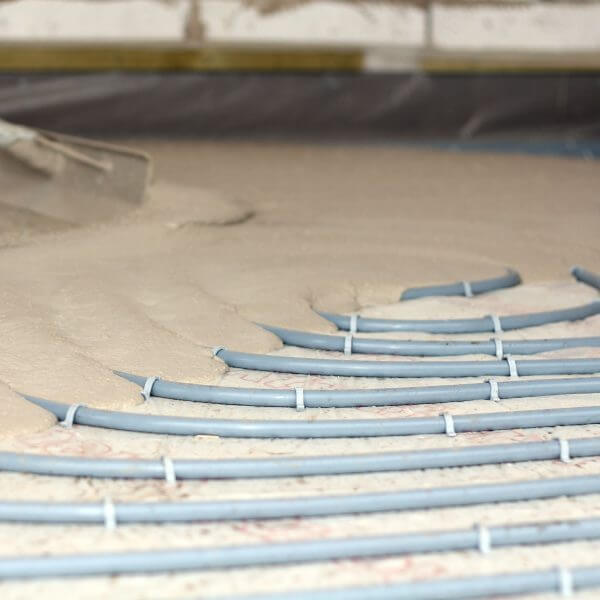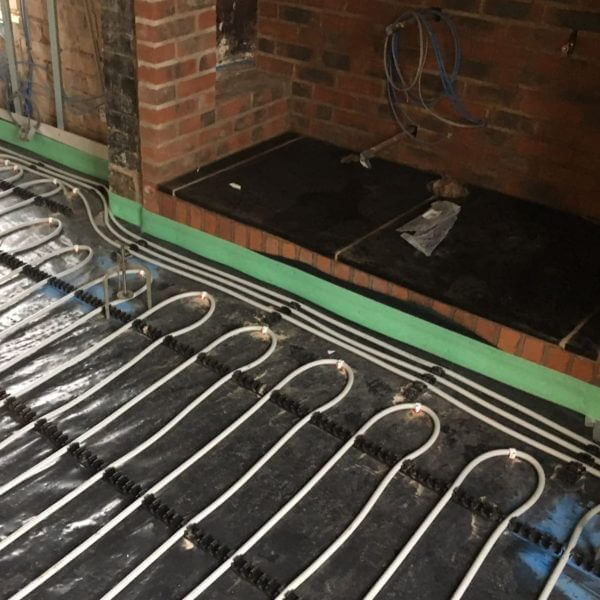Is Your Property Suitable For Heat Pump Installation, And Which Type Would Be Most Efficient?
Sure, heat pumps sound like a great energy-saving tactic, but it is suitable for your property and if so which type is best suited to you?
Is Your Home Suitable for Installation?
Technically, most UK homes are suitable for installation, but in some cases, certain obstacles could occur, preventing complete efficiency.
Older or high-rise buildings typically pose problems for household heat pumps for several reasons. Listed buildings have protections against alterations that would affect the “character” of the building, and you may be restricted in your options. Heat pumps can be installed for flats in high-rise buildings, but it can be difficult if there is limited space for the units or poor airflow.
The main criteria for house heating systems to operate to their full potential are:
- Proper insulation
- Space in the garden or exterior
- Space for the interior hot water cylinder
- Sufficient-sized radiators or underfloor heating
Do You Need Listed Building Consent for a Heat Pump?
Yes, you will need listed building consent for ground source or air source heat pumps. This is because they will require the installation of indoor and outdoor units that alter the character of the building.
Can Heat Pumps be Installed Indoors?
Indoor heat pump installations are not recommended as they require ventilation and may damage the structure’s foundation. Heat pumps are best installed outdoors, with an indoor unit responsible for heat distribution only.
Where Should You Not Put a Heat Pump?
Avoid placing heat pumps next to deep-rooted plants or in areas with poor airflow. Household heat pumps generate noise, and should not be placed near neighbours or close to bedrooms. Heat pumps should not be placed at ground level if your property is at risk of flooding during heavy rainfall.
Ground & Air Source Heat Pumps
Air Source
Easyflow supports the installation of air source heat pumps, which are the most common system installed in properties. This process involves extracting heat from the atmosphere and turning it into heat for the property. The heat drawn from outside is used to heat a special refrigerant liquid which, as it warms up, turns into a gas. This heat is then compressed to increase the temperature and supply sufficient heat for your home.
Benefits of air source:
- A lower-carbon way of heating the home, using electricity rather than gas.
- Cheap and easy to install.
- Operate efficiently in temperatures as low as -15 degrees.
- Normally don’t require planning permission.
- Typically lasts as long as 20 years.
Ground Source
Heat is absorbed from the ground using a series of buried pipes. A mixture of antifreeze and water is circulated around this loop of pipes (absorbing the heat from the ground). This then passes through to the system where it is compressed, the temperature is raised and it’s then ready to heat your home.
Ground source systems generally require more groundwork preparation before installation, making it a lengthier and more expensive process.
Benefits of ground source:
- Efficient in lower temperatures.
- Requires minimal maintenance.
- Typically lasts as long as 20 years.
- Redeem government incentives for investing in a low-carbon heating system.
Should I Get a Ground or Air Heat Pump?
The best solution depends on your circumstances. A ground source heat pump is often more efficient than an air source and more complex to install. Air source heat pumps are cheaper to install on average.
Other Types of Heat Pumps
Solar-Assisted
Solar assisted systems combine the ground source process with Solar Photovoltaic Thermal to absorb heat from the sun and use it to heat the property. In the same way as GSHP the thermal energy is absorbed into the fluid in the pipes, before being transferred through the heat exchanger into the heat system.
Benefits of solar assisted:
- Quick and easy to install.
- Low carbon, environmentally friendly heating system with year-round efficiency.
- Operate efficiently in temperatures as low as -15 degrees.
- Reliable and robust, typically lasting up to 25 years.
- Redeem government incentives for investing in a low-carbon heating system.
Water Source
During this process, water is extracted from large bodies of water near the property, typically a pond or stream (providing it has sufficient depth and flow rate). Pipes that are circulated with a mixture of anti-freeze and water are carefully placed into the water to absorb heat. In the same way as the other methods, this is then passed through the heat exchanger to the pump to generate heat for the building.
Benefits of water source:
- Efficient and low carbon source of heating.
- Compared to other variants, WSHPs have a higher efficiency due to their high specific heat capacity.
- Quiet, long-lasting operation.
- Reliable and will last typically between 20-25 years.
- Redeem government incentives for investing in a low-carbon heating system.
Which Heat Pump is the Most Efficient?
Both ground source and air source are efficient household heat pumps, especially when used with underfloor heating. Ground source heat pumps tend to be more efficient in colder conditions. Solar-assisted is very efficient during summer, but less efficient in winter when there is reduced sunlight. While water source heat pumps are extremely efficient year-round, not every property has access to large bodies of water.
Find out more about heat pump running costs, and their efficiency here.




Where To Find Us